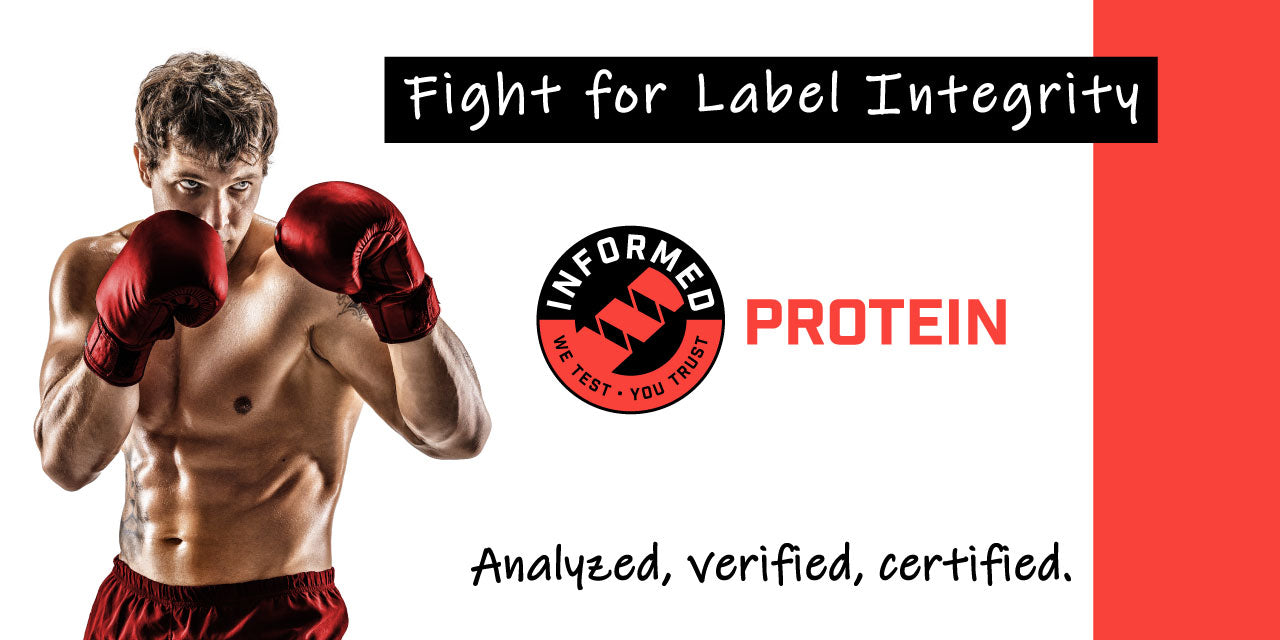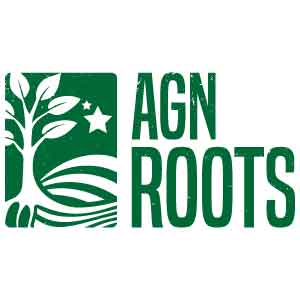Certified with Informed Protein

What is Informed Protein?
Informed Protein is our answer to all of the questions that our community continues to ask brands searching for integrity and assurance but rarely will receive a trustworthy response. These questions often include a version of the following -
- Can I trust this product's nutrition facts / supplement facts label?
- Is there really 25 grams of protein macros in this product?
- What Analytical tests have been performed on this product?
- What "independent" lab is performing 3rd party testing?
- Does my protein really test for Heavy Metals & Pesticides?
- How do I know if this product contains what it claims in nutrients?
- Nowadays, "3rd Party Tested" literally means nothing; How can I trust the nutrient composition marketing on all these plastic tubs?
We are happy to announce that there is finally a solution to label integrity concerns. The Informed-Protein program is now the perfect assurance for protein powder label integrity; do not settle for less; trust your favorite brands, but demand verification!
What Assurances Does Informed Protein Offer?
The critical elements of the program verify the actual protein quantity in the product by assessing the total nitrogen content. Furthermore, ongoing carbon/nitrogen (C/N) ratios are evaluated to ensure batch consistency and to rule out the potential for amino acid spiking or the addition of cheaper free amino acids that otherwise contribute to the non-protein nitrogen count. Lastly, the program provides assurance around manufacturing, heavy metals, and pesticides.
Learn More: Heavy Metals & Whey Protein
How often is the product tested?
AGN Roots submits every batch (lot#) to both the Informed-Sport & Informed Protein for pre-market testing. Upon confirmation, the products are made available for retail purchases. The program also collects monthly blind samples from various retail platforms and tests to ensure the brand's integrity.
What is Amino Acid Spiking?
Have you ever considered that your protein product is not really delivering what it states in terms of protein grams? How would you as the consumer know if this is happening to you?
Given the non-existent pre-market regulations in place to verify the integrity of a protein supplement, unethical strategies take advantage of where possible.
Amino Acid Spiking is a fraudulent, easy to execute practice that falsely attributes nitrogen from a non-protein additive to the total protein content on a product. Thus, the supplement or nutrition facts on the back of your plastic tub may claim "20 grams of protein per serving"; however, the actual protein composition is much less.
Why do Protein Brands "Amino Spike?"
Scenario:
Company X: Owner of a protein brand that sources from California
California: This year, the weather was unforgiving, which resulted in a lower protein yield and expensive protein powder
Company X: Does not want to update packaging or Increase the price to account for annual inconsistencies
Company X: Prepares the sample protein powder for the lab analytics. Fearful of terrible news, Company X adds a few grams of Non-Protein-Nitrogen (NPN) additives to give the sample a little nitrogen boost.
Lab: Receives the protein sample; nothing disclosing the ingredients or sourcing is available; the lab proceeds with the standard nitrogen factor to execute the AOAC protein concentration test as per FDA 21 CFR § 101.9(c)(7). The resulting nitrogen content is measured, and the protein content is very high.
Lab: Creates the Certificate of Analysis and sends it to Company X
Company X: Actively markets the COA reflecting a very high protein content and deceives customers
Customers: Unknowingly underserving themselves on their protein macros while conflating the credibility of the "3rd party tested" buzz phrase on the package with product integrity.
The addition of unannounced Amino Acids to the whey protein sample is called "Amino Spiking." By not disclosing the addition of nitrogen that is NOT bound or contributing to actual protein content, the lab naturally assumes a nitrogen factor that is too high, not designed to account for the spiking of non-protein-nitrogen additives.
Note: The nitrogen factor is the empirically derived multiplier that provides a total nitrogen ratio used to determine the total protein concentration for any given protein source.
The AOAC lab test for macro protein concentration is indirect; the direct measurement is of total nitrogen, and from this, utilizing the nitrogen factor, total protein concentration is indirectly discovered.
Is Amino Spiking Bad?
At AGN Roots, we hate to judge. Deductive reasoning does apply; however; "Amino Spiking" is considered fraud. Fraud is "bad" ergo, Yes, Amino Spiking is bad.
What are the Signs for Amino Spiking?
The scenario above makes it impossible for consumers to know if a product or brand is deceiving them. The deception often occurs upstream of the package and product fulfillment. If you can't trust the Certificate of Analysis, what can you trust?
Tip: Less than 0.1% of powdered protein brands manufacture their products. Instead, the business-to-consumer brand purchases the ingredients from a business-to-business ingredient supplier. When it comes to this specific unethical practice, the supplier's COA is most likely accurate. The re-testing and nitrogen spiking are more likely to happen while the customer-facing company versus the manufacturer controls the product.
A good practice is to respectfully ask the brand for their 3rd party certificates and QA/QC practices. If the brand is doing anything unprofessional, you should be able to notice.
What are the Signs of Amino Spiking?
Unfortunately, the customer has zero visibility in this space. The ONLY way to know is through the trust established by a globally recognized accredited assurance program like Informed-Protein. Look for the logo.
There is no shortage of blogs on this topic. Many competitor websites seemingly understand everything about Amino Spiking except how to assure their customers against it.
For a list of protein sources and a detailed explanation of testing processes to verify your product is not spiked with fake protein macros, visit Informed-Protein online.
What Company Owns the Informed-Protein Standard?
Informed Protein has officially joined the INFORMED family of assurance programs established by LGC (formally Laboratory of Government Chemists ~ 25 years ago).
There is nothing like the Informed Protein program, which offers consumers, nutritionists, and athletes the highest levels of confidence and support.
How Can I Tell a Product is Certified?
Certified products carrying the Informed Protein logo undergo a range of analytical tests to verify the protein level stated on the label and the integrity of the protein measurement, including evaluation of potential impurities.
We Test. You Trust.
Of the INFORMED certifications for protein, Informed Protein serves the AGN Roots' commitment to quality and transparency with certainty. Every AGN Roots customer deserves to be confident in knowing the disclosed macros on our label that we actively market are verified and contained as stated within the product; Informed Protein offers this assurance. Our health is all we have; live informed!
Learn More: Informed Protein


